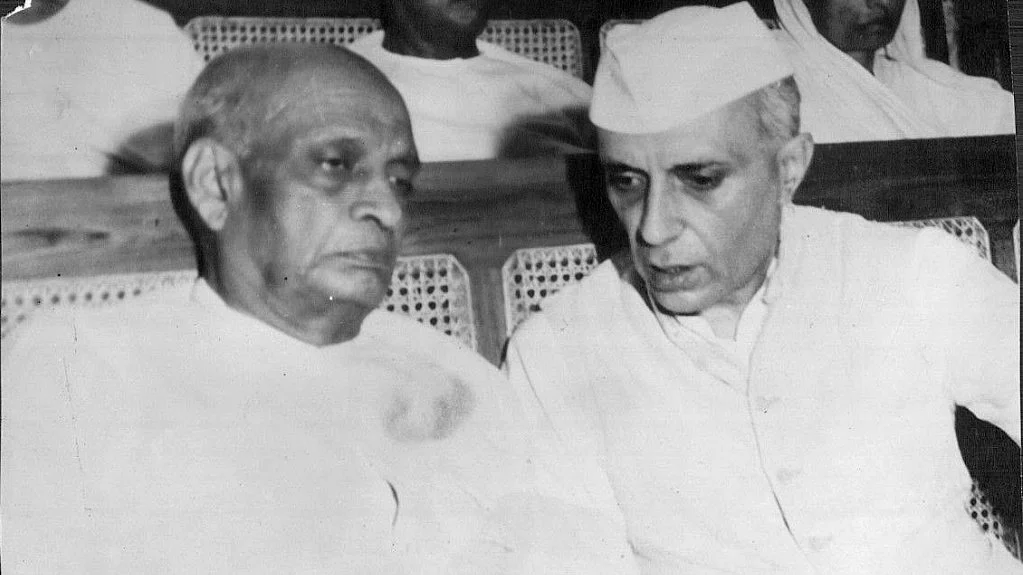When neither India nor Pakistan wanted Kashmir
Liaquat Ali Khan had set his heart on Hyderabad and not the ‘rocks of Kashmir’ while Sardar Patel felt Kashmir was Pakistan’s for the asking but surely not Hyderabad

Kuldip Nayar, in his book Beyond the Lines—An Autobiography writes on Sardar Patel’s consistent view that Kashmir should be part of Pakistan. Nayar writes, ‘My impression is that had Pakistan been patient it would have got Kashmir automatically. India could not have conquered it, nor could a Hindu Maharaja have ignored the composition of the population, which was predominantly Muslim. Instead, an impatient Pakistan sent tribesmen along with regular troops to Kashmir within days of Independence.’
Nayar goes on to say, ‘While it is true that Nehru was keen on Kashmir’s accession to India, Patel was opposed to it. Even when New Delhi received the maharaja’s request to accede to India, Patel had said, “We should not get mixed up with Kashmir, we already have too much on our plate”.’ Patel remained consistent on his perception that while Pakistan shouldn’t talk of Hyderabad, Kashmir should go to Pakistan.
Chaudhri Mohammad Ali gives us an interesting detail on Patel’s perception on Kashmir in his book The Emergence of Pakistan.
He writes, ‘While attending a meeting of the Partition Council, Sardar Patel, although a bitter enemy of Pakistan was a greater realist than Nehru. In one of the discussions between the two Prime Ministers at which H.M. Patel and I were also present, Liaquat Ali Khan dwelt at length on the inconsistency of the Indian stand with regard to Junagadh and Kashmir. If Junagadh, despite its Muslim ruler’s accession to Pakistan, belonged to India because of its Hindu majority, how could Kashmir, with its Muslim majority, be a part of India simply by virtue of its Hindu ruler having signed a conditional instrument of accession to India? If the instrument of accession signed by the Muslim ruler of Junagadh was of no validity, the instrument of accession signed by the Hindu ruler of Kashmir was also invalid. If the will of the people was to prevail in Junagadh, it must prevail in Kashmir as well. India could not claim both Junagadh and Kashmir.’
Chaudhri Mohammad Ali writes, ‘When Liaquat Ali Khan made these incontrovertible points, Patel could not contain himself and burst out, “Why do you compare Junagadh with Kashmir? Talk of Hyderabad and Kashmir and we could reach an agreement”.’
Chaudhri comments further, ‘Patel’s view at this time and even later was that India’s effort to retain Muslim majority areas against the will of the people was a source not of strength but of weakness of India. He felt that if India and Pakistan agree to let Kashmir go to Pakistan and Hyderabad to India, the problems of Kashmir and Hyderabad could be solved peacefully and to the mutual advantage of India and Pakistan.’
Sirdar Shaukat Hayat Khan in his book, The Nation That Lost Its Soul relates how at a dinner, Lord Mountbatten conveyed a message from Patel. ‘Patel had said that Pakistan could take Kashmir and let go Hyderabad Deccan which had a majority Hindu population and was nowhere near Pakistan by sea or land.’
Hayat Khan goes on to say, ‘After delivering this message, Lord Mountbatten went to sleep in the Lahore Government House. I being overall in-charge of the Kashmir operations went to Liaquat Ali Khan. I suggested to him that as the Indian army had entered Kashmir in force and we would be unable to annex Kashmir with tribal mujahids or even with our inadequate armed forces, we should make haste to accept Patel’s proposal.’
‘Nawabzada (Liaquat Ali Khan) turned round to me and said, “Sirdar Saheb, have I gone mad to give up Hyderabad which is much larger than the Punjab for the sake of the rocks of Kashmir?” I was stunned by the Prime Minister’s reaction and ignorance of our geography and his lack of wisdom. I thought he was living in a fool’s paradise and did not understand the importance of Kashmir to Pakistan while hoping to get Hyderabad, which at best, was only quixotic wishful thinking. It was not connected with Pakistan anywhere. As a protest, I resigned from the position I was holding in Kashmir Operations.’
A.G. Noorani, an accredited scholar having considerable knowledge on the Kashmir issue, has quoted the then president of Pakistan lamenting Liaquat Ali Khan’s attitude to Patel’s proposals. In his article, ‘A Tale of Two States’ Noorani tells us, ‘A quarter century later, on 27 November 1972, the President of Pakistan Zulfikar Ali Bhutto, told a tribal Jirga at Landikotal that India’s first Home Minister and Minister for the States, Sardar Patel had at one stage, offered Kashmir to Pakistan in exchange for Junagadh and Hyderabad. But, he added, Pakistan ‘unfortunately’ didn’t accept this offer with the result that it not only lost all the three native states but East Pakistan as well.’
Excerpts from ‘Kashmir-Glimpses of History & Story of Struggle, Rupa Books, 2018
Follow us on: Facebook, Twitter, Google News, Instagram
Join our official telegram channel (@nationalherald) and stay updated with the latest headlines